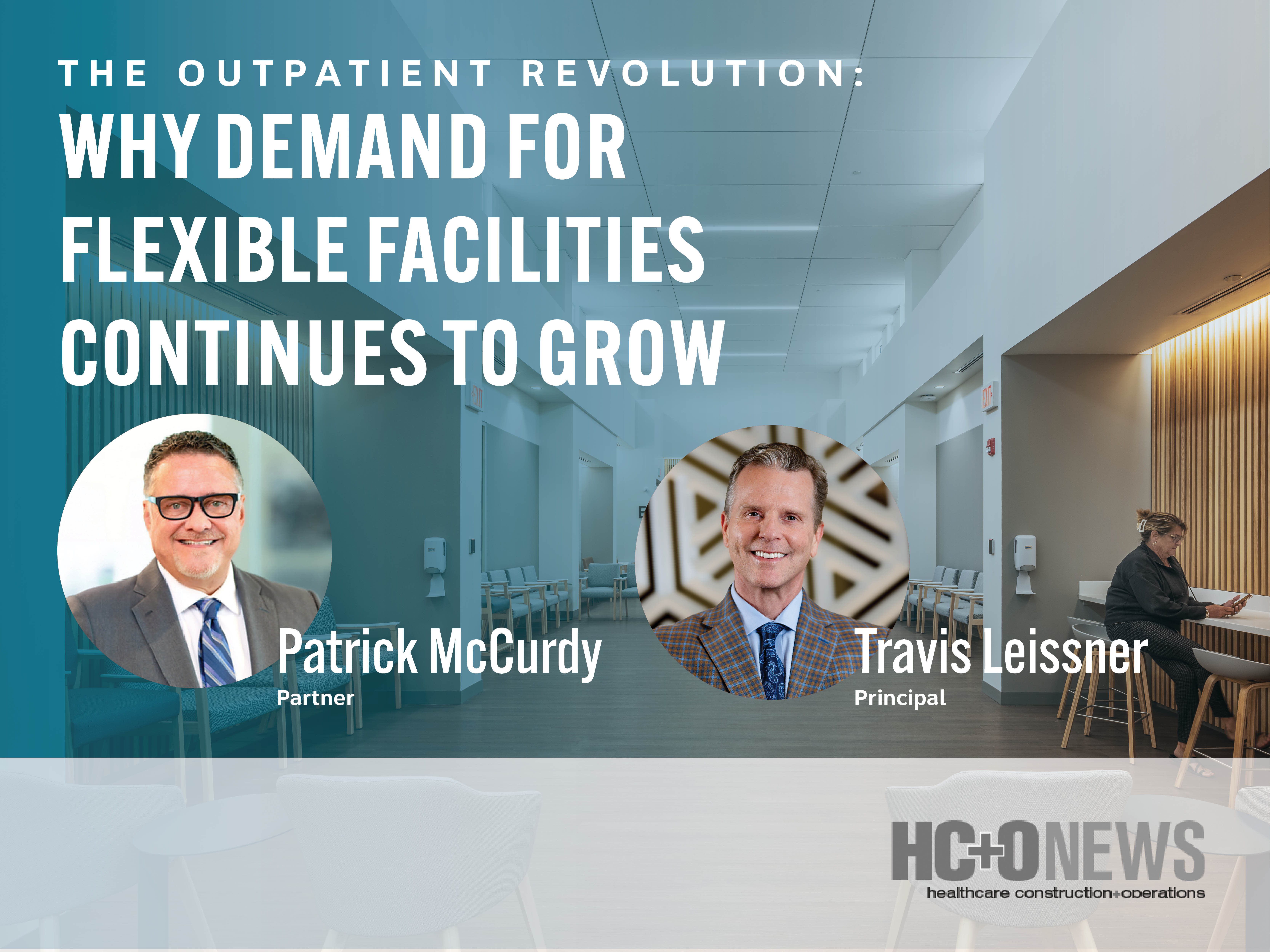The Outpatient Revolution: Why Demand for Flexible Facilities Continues to Grow
In a recent HCO News feature, Patrick McCurdy and Travis Leissner explore how healthcare delivery is rapidly evolving toward accessible, efficient...
1 min read


A new outpatient clinic and domiciliary has been planned for the U.S. Dept. of Veterans Affairs North Florida/South Georgia Veterans Health System.
The new campus will consolidate existing mental health and primary care services into a single campus designed to serve the area’s 45,000 veterans. The 173,500-square-foot outpatient clinic will feature the VA’s Patient Aligned Pact Care Team model of care, which centers on patient-driven, proactive, personalized and team-based care, and a 28,500-square-foot domiciliary will provide residential rehab and treatment services for homeless veterans.
Inspired by the natural beauty found in Florida, the clinic’s architectural and interior design focus on sustainably designed spaces to deliver primary care, mental health services, radiology, optometry, multi-specialty, physical medicine and rehab, audiology and pathology services. Additional features include a large imaging program with MRI, CT and women’s imaging center, as well as substance abuse, homeless and PTSD treatment programs in a home-like setting. Large windows, warm tones and natural elements create a fresh and relaxing environment for veterans and their families. Visual continuity between the interior and exterior of the building unifies the design. Similar materials, colors and proportions will be carried from the main entry, through the lobby atrium and public concourse, and into the patient rooms.

In a recent HCO News feature, Patrick McCurdy and Travis Leissner explore how healthcare delivery is rapidly evolving toward accessible, efficient...

Hoefer Welker is serving as architect for a proposed 33-story residential high-rise at 16th and Broadway in downtown Kansas City. Developed by EPC...

As we kick off the new year, our team at Hoefer Welker is taking the opportunity to reflect on the excellent year we had in 2025. Thanks to the...